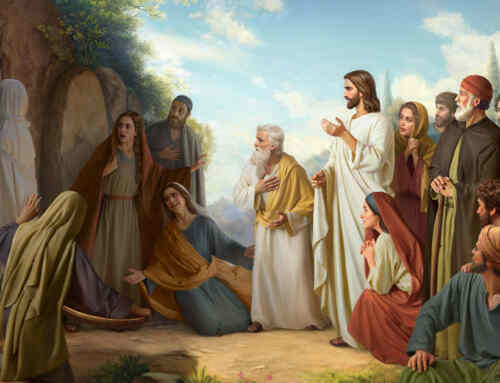“For the fate of the sons of men and the fate of beasts is the same. As one dies so dies the other; indeed, they all have the same breath and there is no advantage for man over beast, for all is vanity. All go to the same place (the grave). All came from the dust and all return to the dust. Who knows that the breath of man ascends upward and the breath of the beast descends downward to the earth?” Ecclesiastes 3:19-21
Ecclesiastes 3:21 is a question. Essentially it’s asking, “who says that the breath of man goes up but the beast’s breath goes down?” Man may say that, but God says something different.
The Bible teaches that all die and go into the grave. However, because Jesus died for us, mankind will be resurrected from death. “As in Adam all die, even so in Christ shall all be made alive,” 1 Corinthians 15:22.
The myth that some part of man goes up to God at death goes back to Satan’s lie in the Garden of Eden. Satan told Eve, “you shall not surely die,” Genesis 3:4. God made the opposite statement in Genesis 2:17, “from the tree of the knowledge of good and evil you shall not eat, for in the day that you eat from it dying you will die.” Death is the punishment for sin.
The word breath in Ecclesiastes 3:21 is the Hebrew word, “ruach.” Strong’s Concordance defines “ruach” as wind or breath. Man’s and the beasts’ breathes cease at death.
Some read Ecclesiastes 12:7 and think Solomon changed his mind at the end of this book. “Then shall the dust return to the earth as it was: and the spirit shall return unto God who gave it.” But this scripture is referring to God’s power to live given to Adam at his creation. God breathed into Adam’s nostrils the breath of life and Adam became a living soul. (Genesis 2:7) The power or permission to live for any being comes from God. Adam and all of his children lost that right to live when Adam sinned. Therefore all people are born dying. The Bible never contradicts itself.















